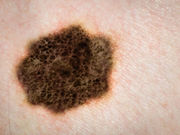Gene Tx Promising in Recessive Dystrophic Epidermolysis Bullosa
Grafts of patients' genetically modified skin improved healing of wounds in early study
Few Changes in Employer-Sponsored Insurance 2013-2014
Only 3.5 percent of employers dropped coverage and 1.1 percent added coverage from 2013 to 2014
New Way Bacteria Can Trigger Inflammation in Acne Identified
Findings may lead to new avenues for treatment
Low and High HDL Tied to Increased Risk of Mortality
Study casts doubt on HDL as an independent cardiovascular disease risk factor
Whites Have Longest Survival in Cutaneous Melanoma
For stages I and III, black patients have significantly lower survival, increased hazard ratios
Epithelial Thickness Is Marker for Gastroesophageal Reflux
Epithelial thickness is best performing criterion for GERD diagnosis in patients with upper GI symptoms
ISDA: U.S. Prevalence of Immunosuppression 2.7 Percent
Prevalence ranged from 1.8 to 3.1 percent; highest among women, whites, those aged 50 to 59 years
IDSA: Measles Complication SSPE More Common Than Thought
Clinicians to be aware of subacute sclerosing panencephalitis
Child-Parent Screening for Hypercholesterolemia Feasible
Screening feasible in primary care at routine child immunization visits for children aged 1 to 2 years
Subconjunctival Gentamicin Can Cause Macular Necrosis
Subconjunctival gentamicin toxicity most likely mechanism for macular necrosis in 65-year-old



















